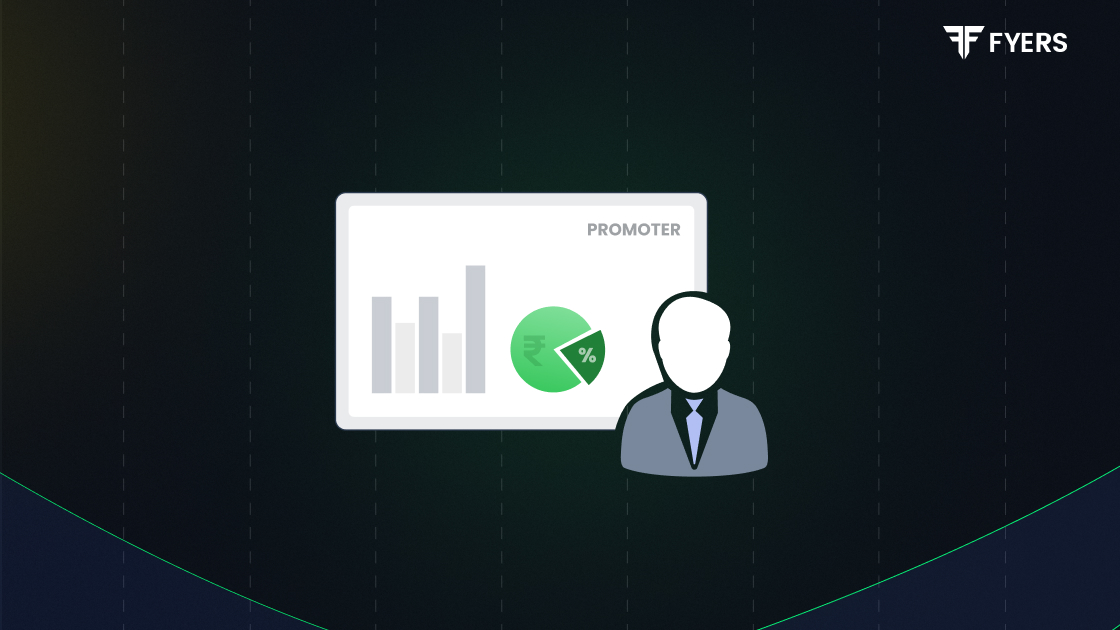

 16 Dec, 2024
16 Dec, 2024
 4 mins read
4 mins read

Promoters are central to the formation of a company, turning an idea into a fully functional entity. They operate as the architects of a company, laying the groundwork by gathering resources, handling legal obligations, and steering the incorporation process. Let's delve deeper into their role, functions, and legal position, alongside practical examples to illustrate their importance.
A promoter is someone who initiates the process of forming a company. According to Section 2(69) of the Companies Act, 2013, a promoter is:
Named in the company’s prospectus or identified in the annual returns under Section 92.
Someone with direct or indirect control over the company’s operations (e.g., as a shareholder or director).
A person whose directions or advice the board of directors regularly follows, except professionals providing services.
Example:
The founders of Reliance Industries, led by Dhirubhai Ambani, acted as promoters, bringing together resources and managing pre-incorporation tasks to establish one of India’s largest conglomerates.
The tasks of a promoter cover all aspects of company formation, including administrative, financial, and legal groundwork.
1. Conceptualizing the Idea
Promoters identify a business opportunity and assess its feasibility by considering factors like market demand, competition, and resources.
Example: The Tata Group, under Jamsetji Tata, envisioned an industrial empire, starting with Tata Steel. His role as a promoter involved studying the feasibility of steel production in India.
2. Arranging Resources
Promoters secure capital, identify investors, and manage preliminary expenses, such as legal fees and advertising costs.
Example: N. R. Narayana Murthy, along with six other co-founders, established Infosys in 1981. They started the company with an initial capital of $250, which they mostly borrowed from their spouses. This was indeed a classic example of pooling resources for the initial setup.
3. Drafting Foundational Documents
Promoters prepare the Memorandum of Association (MoA) and Articles of Association (AoA), specifying the company’s objectives, structure, and governance rules.
4. Registering the Company
Filing incorporation documents, obtaining licenses, and liaising with regulatory bodies is part of their job.
5. Making Preliminary Contracts
Promoters negotiate contracts with suppliers, property owners, and service providers on behalf of the yet-to-be-formed company.
Example: During its inception, Flipkart’s founders, acting as promoters, secured contracts with logistics partners to manage the delivery ecosystem.
Promoters can be categorized based on their involvement and expertise:
1. Professional Promoters
These are specialists who professionally manage the promotion process. Once the company is established, they exit by transferring control to stakeholders.
Example: Merchant banking firms act as professional promoters for startups seeking structured guidance.
2. Occasional Promoters
These individuals or entities promote companies occasionally, often as an extension of their primary profession.
Example: A lawyer or accountant who helps set up a business for a client may act as an occasional promoter.
3. Financial Promoters
Financial institutions or venture capitalists may act as promoters by funding businesses during their formative stages.
Example: SBI Capital Markets, a financial institution, has promoted several businesses by providing initial funding and strategic support.
4. Entrepreneurial Promoters
Founders who conceive the idea and remain actively involved in the company's management.
Example: Ratan Tata’s leadership in Tata Motors as both a promoter and a director.
The legal position of a promoter is complex and unique:
1. Fiduciary Relationship
Promoters owe a duty of trust and confidence to the company. They must act in the company's best interest without exploiting their position for personal gain.
2. Case Example: Erlanger v. New Sombrero Phosphate Co. (1878)
A promoter sold a property to the company at a significant profit without disclosing it. The court held the promoter liable for breaching his fiduciary duty and ordered the profit to be refunded.
3. Personal Liability
Promoters can be held personally liable for pre-incorporation contracts unless the company explicitly adopts them post-incorporation.
Example: If a promoter leases office space before the company's registration, they are personally liable unless the company ratifies the agreement.
4. Non-Agency Status
Since a company does not legally exist before incorporation, promoters cannot act as its agents.
Promoters bear several responsibilities to protect the company's interests and stakeholders:
1. Transparency
All material facts, such as financial transactions and business risks, must be disclosed to potential investors and stakeholders.
2. Avoiding Secret Profits
Promoters must not make undisclosed profits from the company’s transactions. If they do, they may be required to return the gains.
3. Acting in Good Faith
Their decisions should prioritize the company’s success and sustainability over personal benefits.
For investors, understanding the role and activities of promoters is crucial as it provides insights into the company’s leadership, long-term strategy, and operational integrity. High promoter holding is often seen as a sign of confidence, while any significant offloading of shares may indicate potential red flags. Investors must carefully evaluate such movements to make informed decisions in the dynamic world of the stock market.
Promoters in stocks are individuals or groups with significant shareholding and control in a company. Their involvement often reflects stability, as high promoter holding indicates confidence in the company’s growth.
An investor contributes funds without taking an active role in operations. In contrast, a promoter is directly involved in forming the company and steering its initial trajectory.
Yes, but such actions are closely monitored, especially in publicly listed companies, as significant promoter sell-offs can signal internal instability or lack of confidence in the business.
Yes. A shareholder can transition into a promoter if they start influencing management decisions or are identified as such in official filings.
Promoters have a fiduciary duty toward the company. They are not agents or employees but must act with integrity to avoid liabilities for misrepresentation or breach of trust.
Calculate your Net P&L after deducting all the charges like Tax, Brokerage, etc.
Find your required margin.
Calculate the average price you paid for a stock and determine your total cost.
Estimate your investment growth. Calculate potential returns on one-time investments.
Forecast your investment returns. Understand potential growth with regular contributions.